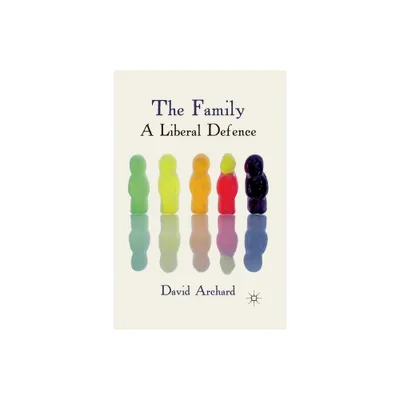Home
Defence of Liberal Education: Philosophy and Controversies
Loading Inventory...
Barnes and Noble
Defence of Liberal Education: Philosophy and Controversies
Current price: $35.99


Barnes and Noble
Defence of Liberal Education: Philosophy and Controversies
Current price: $35.99
Loading Inventory...
Size: OS
*Product Information may vary - to confirm product availability, pricing, and additional information please contact Barnes and Noble
What is a traditional liberal education, and what are the arguments for it in the twenty-first century? This collection of essays by Anthony O’Hear sets out an alternative educational philosophy to the prevailing progressivist thinking on these issues, which tends to be either utilitarian or child-centred, or both, and often politically motivated. This book explores these trends and their historical roots, and contrasts them with liberal education.
There are few contemporary expositions or philosophical defences of this view of education.
In Defence of Liberal Education
is one attempt to make the case for it. The author recounts his own personal experience of setting up the University of Buckingham’s education department and of lessons he learned in advising governments on educational policy over a number of years. He outlines what might constitute a classical curriculum and its virtues, as well as criticizing the tendencies currently militating against it. He considers the role parents’ rights play should play in their children’s education, and challenges a number of contemporary myths about learning and education. He points to the confusions involved in attempts to 'de-colonize' the curriculum and to dangers inherent in involving schools in campaigns over gender and sexuality. Liberal education, by contrast, aims to enable pupils to reach calm and considered judgements on disputed matters, against a background of immersion in the best that has been thought and known.
There are few contemporary expositions or philosophical defences of this view of education.
In Defence of Liberal Education
is one attempt to make the case for it. The author recounts his own personal experience of setting up the University of Buckingham’s education department and of lessons he learned in advising governments on educational policy over a number of years. He outlines what might constitute a classical curriculum and its virtues, as well as criticizing the tendencies currently militating against it. He considers the role parents’ rights play should play in their children’s education, and challenges a number of contemporary myths about learning and education. He points to the confusions involved in attempts to 'de-colonize' the curriculum and to dangers inherent in involving schools in campaigns over gender and sexuality. Liberal education, by contrast, aims to enable pupils to reach calm and considered judgements on disputed matters, against a background of immersion in the best that has been thought and known.


















